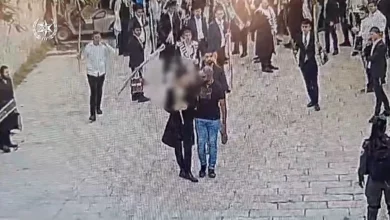Today’s local press offers a quite diverse coverage.
State-owned Al-Ahram daily leads with the content of the draft law on houses of worship. Under the new law, governors will be the ones to decide on the construction of mosques or churches. Applicants should receive their license within three months. If they do not hear back from the governor within that time period, their application is considered approved. If the application is turned down, the governor should provide enough justification for this decision, says Al-Ahram.
For years, Copts have said the restrictions imposed on church construction are discriminatory, demanding that their houses of worship are subject to the same regulations as mosques. The new law is expected to serve this purpose and end decades of sectarian contention over houses of worship.
The new law also bans the construction of houses of worship inside residential blocs, in historical sites and on agricultural land. Any violation of the law is expected to be met with a prison sentence of two to five years and a fine ranging from LE1000 to LE3000. The Supreme Council of the Armed Forces (SCAF) is expected to pass a decree for the new law within days, according to the same report.
Also on Al-Ahram's front page, a headline reads: “Threats to sue the justice minister if he does not apologize to judges.” The paper quotes Justice Hassan al-Naggar, president of the Appeal Court, as saying that judges will sue Justice Minister Mohamed al-Guindi if he and the SCAF do not apologize for referring him and another two judges for interrogation. The referral was ordered after judges criticized the trial of civilians in military courts in an interview with a television channel.
The paper goes on to quote reformist judge Ahmed Mekky as saying that Guindi made a mistake by approving the referral of the judges to interrogation. He adds that the judges did not “commit any crime” that deserved interrogation.
In recent weeks, the military has also targeted journalists. Last week, a television host, a writer and a blogger were summoned by the military prosecutor for criticizing the army. Earlier, another two journalists received the same summons for publishing a report saying that former president Hosni Mubarak was going to apologize to the nation and demand amnesty. Although none of them were prosecuted, the procedure was considered an infringement on freedom of expression and an attempt to intimidate journalists.
State-owned Al-Akhbar leads with a headline reading: “The fate of municipal councils to be decided within days." The paper quotes General Mamdouh Shahin, assistant defense minister for legal affairs, as saying that municipal councils could only be dissolved by a court verdict.
He affirmed that the SCAF is looking into the matter to see how to satisfy political forces that are calling for the councils' immediate dissolution. Local councils are dismissed by most political groups as hotbeds of corruption because they remain dominated by the remnants of the formerly ruling National Democratic Party (NDP), which was disbanded by an Egyptian court in April.
For several weeks, the military has been promising to resolve the matter within days. But nothing has changed so far. Shahin had made the statements on the issue at the National Accord Conference held yesterday. At the same conference, attendants recommended that all NDP members be denied the right to engage in politics for five years. As to those implicated in vote rigging, participants insisted they should be denied that right for ten years, while members of the party’s political bureau and general secretariat be excluded from politics for the rest of their lives, according to Al-Akhbar.
Al-Shorouk, a privately-owned daily, leads with a totally different story. On its front page, the paper highlights the results of a recent Gallup poll showing that 10 percent of Egyptians support the Muslim Brotherhood while 10 percent still back the dissolved NDP. The paper also highlights that 94 percent said they have confidence in the military.
The paper’s managing editor, Wael Qandil, has a poignant article on the first anniversary of the death of Khaled Saeed, widely believed to have been killed by policemen in the Mediterranean city of Alexandria. Qandil holds the killing of the 26-year-old man as the spark of the Egyptian revolution. “Hosni Mubarak and Habib al-Adly are gone, the state of informants has fallen…, but Khaled Saeed remains alive in the hearts of all honest Egyptians, with his fascinating smile and innocent features,” Qandil writes.
Hideous pictures of Saeed's deformed face last June elicited a stir nationwide and provoked dozens of protests. Supporters of his cause eventually created a Facebook page named "We are all Khaled Saeed." This page played a crucial role in mobilizing thousands of Egyptian youths to take to the streets on 25 January and make their revolution.
Egypt's papers:
Al-Ahram: Daily, state-run, largest distribution in Egypt
Al-Akhbar: Daily, state-run, second to Al-Ahram in institutional size
Al-Gomhurriya: Daily, state-run
Rose al-Youssef: Daily, state-run
Al-Dostour: Daily, privately owned
Al-Shorouk: Daily, privately owned
Al-Wafd: Daily, published by the liberal Wafd Party
Al-Arabi: Weekly, published by the Arab Nasserist party
Youm7: Weekly, privately owned




